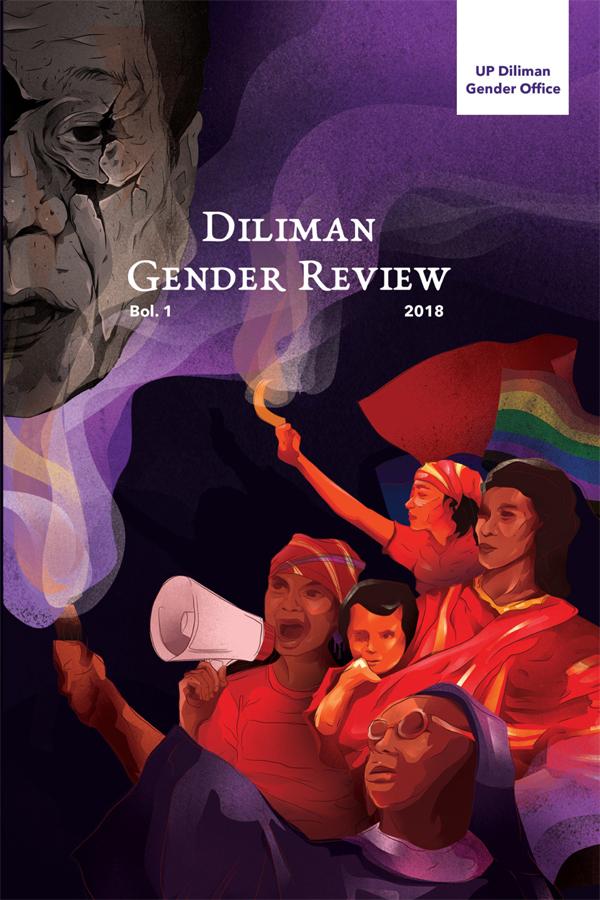Climate Trouble: Women in Coastal Communities in the Philippines Respond to Climate Changes
Abstract
ABSTRAK
Ang pagbabago ng klima at kapaligiran ay ramdam na sa mundo sa kasalukuyan. Ang papel na ito ay nagpakita ng mga karanasan ng mga kababaihan na naninirahan sa mga komunidad sa tabing-dagat na lumahok sa First Philippine National Workshop on Women in Fisheries and Climate Change na ginanap sa Tagbilaran, Bohol. Ang mga komunidad na ito ay masasabing bulnerable dahil sa pag-angat ng lebel ng karagatan at pati na rin ang pabagubagong panahon. Dahil dito ay nasabi ng mga kababaihan na apektado ang kanilang pangunahing kabuhayan na pangingisda, ilang aspeto ng kanilang kalusugan, relasyong pampamilya at iba pang gawain sa buhay. Kasama ring inilalahad ng papel na ito ang mga paraan kung paano nila naipapaliwanag ang mga pagbabago sa kanilang kapaligiran hango sa kanilang kaalamang-bayan at kung paano nila nireresolba ang mga hamong kanilang hinaharap. Ang mga karanasang naisalaysay ng mga kababaihan ay nagpapakita ng pagkakaiba nila sa mga gawi ng mga kalalakihan na naninirahan din sa tabing-dagat. Naipakita rin ng papel na ito na ang bigat ng pagharap sa mga hamon ng pabagubagong klima ay pasan ng mga kababaihan, habang ang mga kalalakihan naman ay abala sa paghahanap-buhay. Ang papel ay nagtatapos sa paglalahad ng mga rekomendasyon na mula na rin sa mga kababaihang naglalayong ibayong pagtibayin ang kanilang kakayahan kasama ang kanilang asawa at mga mahal sa buhay, nang mangibabaw sa mga paghamon ng pagbabago ng klima at kapaligiran.
ABSTRACT
Climate change characterized by sea level change and extreme weather events, among others, is currently experienced by communities worldwide. Coastal communities are particularly vulnerable as climate change adversely affects fishing, the main source of livelihood of settlements along the shore. This paper looks into the experiences of the participants in the First Philippine National Workshop on Women in Fisheries and Climate Change held in Bohol, Philippines in 2010; women in coastal communities from the three major island groups of the Philippines (namely, Luzon, Visayas, and Mindanao); and NGO workers who had deep engagement with grassroots women in their partner coastal communities. It covers the challenges the women faced, the explanatory models they utilized as they tried to make sense of the environmental changes, and the strategies they employed to cope with these challenges. It reveals how some of the local knowledge utilized by the people continued to help them cope with the environmental and climatic challenges while other traditional knowledge no longer seemed to be adaptive in the current environmental context. It shows the health and socio-economic impacts of climate changes. It highlights gendered differences in concerns and strategies, particularly those employed by women within their respective fishing communities as shaped by their roles and responsibilities -- including the burden of household recovery and rehabilitation. The paper also tackles recommendations drawn from the women themselves, particularly on self-empowerment towards working hand in hand with the men in achieving resilience and reducing disaster risk in their communities.
Keywords: women in coastal communities, climate change, climate coping, climatic and environmental extremes



